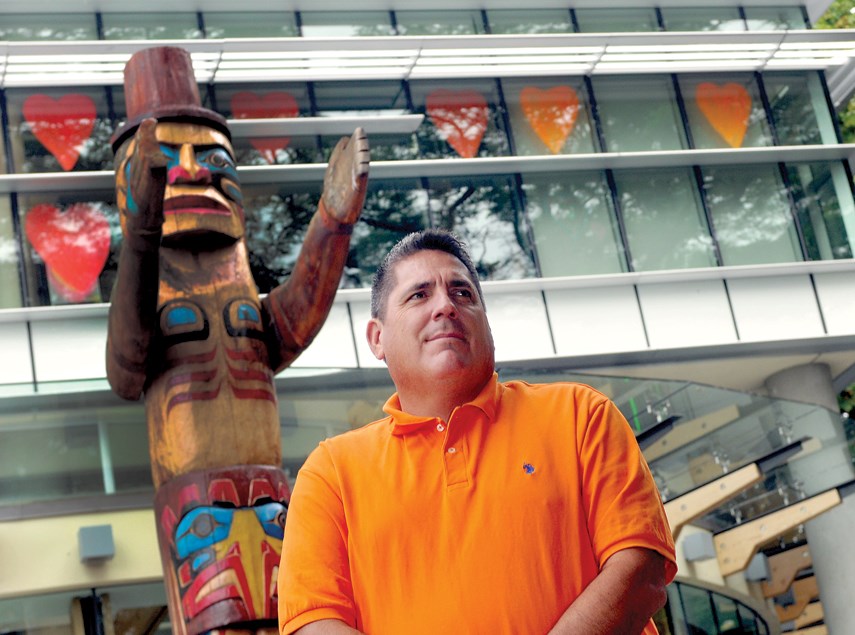Brad Baker grew up listening to his father’s stories of what it was like to be forced to live in a residential school.
As principal of Indigenous education and safe schools for the North Vancouver School District, Baker has transformed his knowledge of the abuse and trauma his father endured into a commitment to honouring all residential school survivors on Orange Shirt Day.
Seven months into the coronavirus pandemic, Baker has a deeper awareness of what it must have been like to be separated from the people you love. In no way does he compare the two experiences but the lockdown and its safety protocols have made his father’s resilience even more meaningful.
“By being so disconnected to my family in the past few months, I found myself fighting through my own struggles,” he says. “The biggest surprise was the inability to do simple things like hug my parents, to hold them, or for them to hold me…. It’s feeling each other's warmth and heartbeat. I still struggle with it because we still can’t hug one another.”
Usually, Baker’s heart is buoyed by what happens when people come together to share stories and raise awareness on Orange Shirt Day. This September 30, no one can gather in large groups because of COVID safe-distancing protocols. The online events won’t have the same impact but he’s grateful for the opportunities that technology provides to continue to bring people together.
Orange Shirt Day is “in recognition of the harm the residential school system did to children's sense of self-esteem and well being, and as an affirmation of our commitment to ensure that everyone around us matters,” says the Williams Lake founders of what is now a national movement.
The name originates with Phyllis (Jack) Webstad. She lived on the Dog Creek reserve with her grandmother. The family was extremely poor but somehow they scrimped together enough money for the six-year-old to excitedly pick out an orange shirt for her first day at residential school. When she arrived at the Mission, all of her own clothes were taken away. She never wore that orange shirt again.
“The color orange has always reminded me of that and how my feelings didn’t matter, how no one cared and how I felt like I was worth nothing” Webstad wrote on the Orange Shirt Day website. “All of us little children were crying and no one cared.”
For many people, the coronavirus pandemic has exposed their personal vulnerabilities. This has made them more empathetic to the suffering of others. A member of Squamish Nation, Baker feels that way, too, and uses that awareness to guide his own actions. “If you look at the different situations that my great-great-great-grandparents have gone through, from displacements to the earlier pandemics, I am struck by the resiliency of people. I think it’s also evident that if we're able to put our minds into being supportive of one another, even if it's a phone call or virtual visit, we can continue to thrive.”
This year, teachers have been given access to resources from organizations such as the National Film Board and B.C. Teachers’ Federation. Baker has pulled together a series of online programs for North Vancouver schools. On Monday, students joined a nationwide online presentation during which they were able to ask questions. On September 30, École Secondary Windsor is hosting a presentation by residential school survivors from Tsleil-Waututh Nation. A limited number of students will be in the large to listen but the event will also be livestreamed.
“Obviously, having a residential school survivor in your presence is awe-inspiring because we know what they've gone through. By being a virtual event you miss that personal connection but we still get to hear their words, which is very important,” Baker says.
On September 30, he encourages everyone to wear an orange shirt or ribbon as a way of continuing the conversation about the legacy of residential schoools.
Martha Perkins is the North Shore News’ Indigenous and civic affairs reporter. This reporting beat is made possible by the Local Journalism Initiative.



